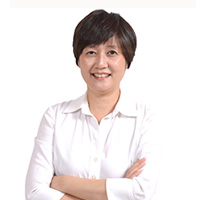[Room Tone] Perfect companion to 'honbap' -- 30-minute shows
By Kim Hoo-ranPublished : Feb. 29, 2024 - 17:33

As a producer in the Korean television industry, I recognize that my competitors are no longer confined to fellow producers within the industry but rather extend to creators in the domains of YouTube, TikTok and video games. As the founder of Netflix once said, his biggest competitors are video games and … sleep.
In this age of on-demand everything, everywhere, all at once, the battle for audience engagement has never been more difficult.
I will admit that I now find it difficult to complete an episode of a Korean broadcast drama, with its longer than 70-minute runtime, without fighting the urge to glance at my phone -- succumbing to a dopamine hit that my brain so desperately desires. Confronted with a fleeting attention span, surpassing the 50-minute mark without seeking additional distractions is a struggle.
Faced with this constraint, I am reminded of a certain type of Korean sitcom from my youth.
Born and raised in the US, my earliest experience with Korean scripted shows came in the form of a half-hour sitcom entitled "LA Arirang," which centered around a Korean family living in Los Angeles. From that point on, I was hooked on Korean sitcoms that made their way to me via the Korean video rental store located inside the local Korean grocery store.
Upon deeper reflection, it wouldn’t be a hyperbole to say that a significant portion of my childhood television viewing consisted of alternating episodes between ‘The Simpsons" and Korean sitcoms such as "Namja Syet Yujah Syet (3 Guys, 3 Girls)" and MBC’s "New Nonstop."
During my college years, my appreciation for half-hour formats continued, including shows like HBO's "Curb Your Enthusiasm" and "Entourage." This inclination has extended into more recent times with titles such as "The Bear" on FX, HBO’s "VEEP," and SBS’s "Super Family." At some point, I realized that Korean studios had stopped producing half-hour sitcoms, turning them into artifacts of the past.
Every so often, my YouTube algorithm suggests an archived episode of an old Korean sitcom, and I am more than willing to take a walk down memory lane. (This might be the one and only time I publicly pull back the curtain on my most guarded of secrets: my YouTube algorithm.)
After spending more time than I would care to admit watching old sitcoms in fuzzy SD quality, I couldn’t help but ponder why these shows have vanished. Perhaps, with the rise of bite-sized content in today’s digital world, the once short-form half-hour show is no longer perceived as "short form." Could it be that they have now been supplanted by TikTok reels and YouTube videos?
Shifting the perspective from a viewer to an industry professional, it’s important to recognize that sitcoms have served as a remarkable breeding ground for talent. Many of today’s most prominent talents started their careers in half-hour sitcoms (the list of incubated talent from ‘New Nonstop” is especially impressive).
In this moment of fleeting audience engagement and digital distractions, half-hour formats may offer a potential solution for delivering scripted narratives in a more receptive format. At the risk of going on a tangent, half-hour shows are an ideal companion for individuals engaging in "honbap" (solitary meals), particularly for those of us who are quick eaters.
The rapid evolution of short-form narratives underscores the importance of adaptability in a highly competitive landscape.
In the escalating battle for audience attention, our industry must persist in discovering innovative approaches to convey compelling and captivating stories in this transient digital age, even if it entails reaching back into history to resurrect a format long overlooked.
Thomas Suh is the founder and managing director of Systeme D Entertainment, a filmed media and entertainment company that specializes in content acquisition, management and production for film and television. "Room Tone," the title of Suh's column series, refers to the ambient sound of a space in which filming takes place. Thomas Suh can be reached at tommysuh@me.com -- Ed.
-
Articles by Kim Hoo-ran






![[Weekender] Korea's traditional sauce culture gains global recognition](http://res.heraldm.com/phpwas/restmb_idxmake.php?idx=644&simg=/content/image/2024/11/21/20241121050153_0.jpg&u=20241123224317)










![[More than APT] Residents, architects together design homes](http://res.heraldm.com/phpwas/restmb_idxmake.php?idx=652&simg=/content/image/2024/11/24/20241124050036_0.jpg&u=)
